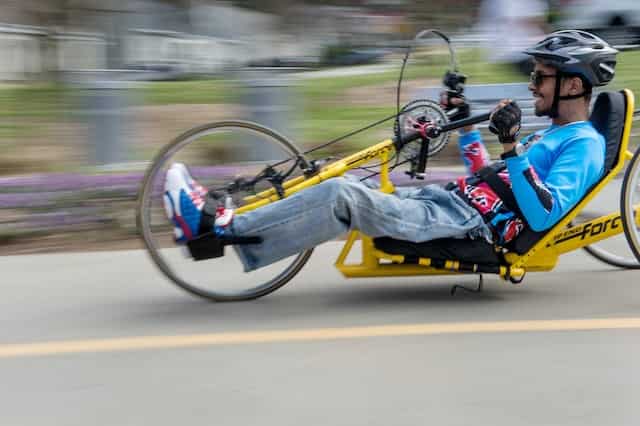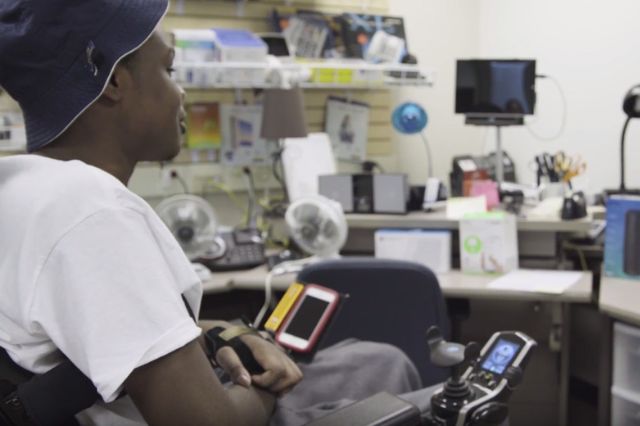Pre-Doctoral Externship: Rehabilitation Psychology Post-Acute Brain Injury
Now accepting applications for Summer/Fall 2025-2026
Externship Overview
This is an advanced intervention practicum involving assessment and therapeutic interventions with individuals with acquired brain injuries. An advanced student is generally defined as a fourth-year student (applying in the spring of the third year) in medical, health, or rehabilitation psychology tracks. The advanced student needs to have completed intervention curricula and completed at least one other external psychology practicum with a focus on psychotherapeutic interventions.
Externship Location
Shepherd Pathways
1942 Clairmont Road
Decatur, GA 30033
Length of Training
August 2025 - August 2026 - 2 days/16 hours per week
- The length of training can be flexible depending on the program and practicum agreement.
- Tuesdays and Wednesdays are strongly preferred.
- Group supervision occurs on Tuesday afternoons and is mandatory for all trainees and staff. The inability to attend group supervision because of other obligations/conflicts is an exclusion criterion for consideration.
Externship Supervisors and Faculty
All students are assigned a primary supervisor. Each week, the student will receive at least one hour of individual supervision in addition to one hour of group supervision obtained through clinical and didactic activities. Additional informal supervision regularly occurs as the student manages the demands of clinical services. Styles and modes of supervision vary according to the supervisor. Students may also receive tiered supervision with postdoctoral neuropsychology fellows. Students receive feedback on case presentations, performance in team meetings and seminars, consultative/supervisory work, writing skills, and overall professional conduct. Future career planning and interviewing skills are also addressed during supervisory sessions.
Externship supervisors and faculty include:
- Taylor Liberta, Ph.D., Clinical Neuropsychologist and Primary Supervisor
- Kristian Nitsch, Ph.D., Neuropsychology Supervisor
Agency Involvement
The primary clinical population includes individuals with traumatic brain injury (TBI) and non-traumatic brain injury. The most common precipitating factors leading to TBI cases seen in this facility include motor vehicle accidents, falls, gunshot wounds to the head, and assault. The most common precipitating factors leading to non-TBI cases seen in this facility include aneurysm, stroke, anoxia, brain tumor, and hydrocephalus. Shepherd Pathways is a multifaceted facility that houses residential, day treatment, and outpatient programs.
We utilize evidence-based biopsychosocial approaches to evaluation, intervention, and rehabilitation. Outpatient interventions include clinical interviews and neurobehavioral evaluations, patient and family psychosocial interviews, neurobehavioral assessments, and may include brief cognitive testing assessment (1.5-2 hours) batteries to facilitate treatment guidelines or capacity determination. Students may also be asked to contribute to developing behavioral guidelines for patients presenting with neurobehavioral challenges (e.g., agitation, impulsivity, etc.).
Features of this practicum include an introduction to adjustment and adaptation to disability and illness; family role changes; re-integration into the community; cognitive/capacity evaluations; crisis intervention; interdisciplinary teamwork; support groups for patients and families; psychoeducation regarding sexuality and intimacy, pain management, substance use, and medical management of injury/disease.
Student Involvement
This is typically a two-day practicum placement (16 hours per week). Students may have the opportunity to lead adjustment groups and psychoeducational lectures for patients and family members. Students will gain experience in consultation with medical staff members, healthcare teams, families, and administrative systems.
Intervention typically consists of short-term therapy, often related to adjustment to injury. Students learn to integrate Cognitive Behavior Therapy (CBT), Acceptance and Commitment Therapy (ACT), and Motivational Interviewing (MI) approaches with clients. They may also develop behavior management plans for clients and teams experiencing behavioral dysregulation that interferes with treatment.
Application Process
Interested students should apply by January 10, 2025, for late summer/fall placement.
Please submit a curriculum vitae and a brief cover letter stating your interest in this practicum and how it will meet your training needs to Dr. Taylor Liberta at Taylor.Liberta@shepherd.org. Students are encouraged to reach out to Dr. Liberta with any questions at the email above or by phone at 404-603-1427.
Interviews will take place from the end of January through February. Students who are selected for interviews will be contacted by their preferred method of communication (e-mail or phone). Candidates will be invited either for onsite or video-conference interviews with staff members. Students will be informed if they will be offered a practicum by the end of February.





